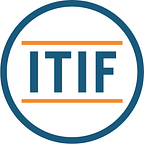Innovative Cure For All: How CurASeal’s Plant-Based Technology Advances Bleeding Control and Wound Healing
This post is one of a series in the #Innovate4Health policy research initiative. #Innovate4Health is a joint research project by the University of Akron IP Center (UAIP), the Information Technology & Innovation Foundation (ITIF), and the Geneva Network. This project highlights how intellectual-property-driven innovation can address global health challenges. If you have questions, comments, or a suggestion for a story we should highlight, we’d love to hear from you. Please contact UAIP Research Fellow Douglas Park at dpark@uakron.edu for more information.
Natalie Khoo
Wound care and hemorrhage management are essential aspects of medical treatment, particularly in surgical procedures. Traditionally, these practices have relied on a combination of dressings, antibacterial agents, and antiseptics to prevent infection, promote healing, and control bleeding. However, the growing prevalence of antibiotic-resistant bacterial strains and the potential for antiseptics to damage healthy tissue have increasingly called the effectiveness of these conventional methods into question. As a result, there is a growing shift towards more advanced antimicrobial wound care solutions which are often enhanced with bioactive compounds.
The demand for such advanced solutions has become even more apparent in recent years due to disruptions in global supply chains, particularly during the COVID-19 pandemic. Countries in the Middle East and North Africa (MENA) regions, such as Egypt and Saudi Arabia, which have long depended on imported medical supplies, encountered significant challenges in obtaining these life-saving products. With approximately 90 percent of medical supplies coming from outside the regions, particularly from the United States and Germany, the MENA medical device import market was valued at over $13.1 billion in 2022. These challenging times have underscored the critical need for local production of medical devices, which is essential not only for ensuring supply chain resilience but also for reducing costs and increasing accessibility to essential healthcare products.
Rooted in the principles of “innovating medical devices for today, tomorrow and what’s needed next,” InCurA, an Egypt and Saudi-based IP deep-tech company, is setting out to democratize access to high quality medical devices in the MENA region. Founded by Mousa Salem and Wesam Sarhan, InCurA focuses on developing a pipeline of cost-effective hemostatic products that not only meet but exceed global standards. Leveraging their unique know-how and cutting-edge technologies, InCurA utilizes the latest advancements in machine learning to develop a novel line of AI-optimized devices which have now been licensed for production in Saudi Arabia with major industry players such as ROYAH Pharmaceuticals and Cighala Healthcare.
Among InCurA’s groundbreaking products is CurASeal, a 100 percent plant-based starch hemostatic powder designed to control bleeding effectively and rapidly. Unlike conventional hemostatic agents, CurASeal employs a patent application Nano-in-Microsphere technology, complemented by perforated microparticles that enable rapid blood clotting in seconds. This innovative structure ensures complete absorption by the body within 48 hours. Similarly, the starch porous microparticles feature a unique concave, red-blood-cell-like structure and nanopores on the surface, allowing for instant and complete blood penetration, setting it apart from existing products like Arista (BD’s hemostatic powder) and SURGICEL Powder (J&J) which only offer partial or no penetration.
Besides, CurASeal’s versatility makes it suitable for a wide range of surgical applications, including vascular, urology, cardiothoracic, orthopedic, general, and plastic surgeries. Available in 1gm and 3gm sizes, CurASeal is engineered to perform optimally in narrow and hard-to-reach surgical sites, providing the quickest blood clotting activity. This is achieved through three synergistic mechanisms: concentrating cellular and protein components for clot formation, amplifying thrombin formation to accelerate the coagulation cascade, and exhibiting antifibrinolytic activity to maintain a stable clot.
InCurA’s success can be attributed to its robust IP portfolio, which covers various facets of its composition and manufacturing process. For instance, the product’s starch microparticles are specifically designed for enhanced blood penetration and adhesion, which significantly improves its efficacy compared to other products on the market. Additionally, by eliminating enzymes from the formulation, InCurA has managed to reduce production costs, allowing CurASeal to be competitively priced and accessible to markets with critical needs, such as those in Africa. This strategic intellectual property management has not only safeguarded the company’s innovations but also ensured its ability to meet urgent healthcare needs efficiently.
This success is further bolstered by the company’s strategic initiatives and recognition in the industry, which have garnered significant recognition and investment. InCurA has secured funding from prominent investors, including Kaust Innovation Ventures, to support its mission of democratizing access to high-quality healthcare solutions and expanding its operations. Furthermore, the company’s achievements have also been acknowledged through prestigious awards, including the ID&E Disruptors Award for co-founder Wesam Sarhan, and a spot on Forbes 30 Under 30 Middle East for co-founder Mousa Salem. These honors highlight InCurA’s transformative role in advancing medical technology within the MENA region.
By addressing the “Valley of Death” — the challenging gap where biomedical research often fails to reach commercialization — InCurA has established a comprehensive business model that connects market needs with innovative laboratory research. This synergy facilitates efficient manufacturing and distribution throughout the MENA region.
Through strategic partnerships and a dedication to locally produced, high-performance medical devices, InCurA is not only tackling present challenges but also setting new benchmarks for the future of medical care. As the company broadens its product repertoire and augments its manufacturing prowess, it stands ready to play a pivotal role in ensuring essential healthcare solutions are within reach for all, especially in regions where they’re most desperately needed.
